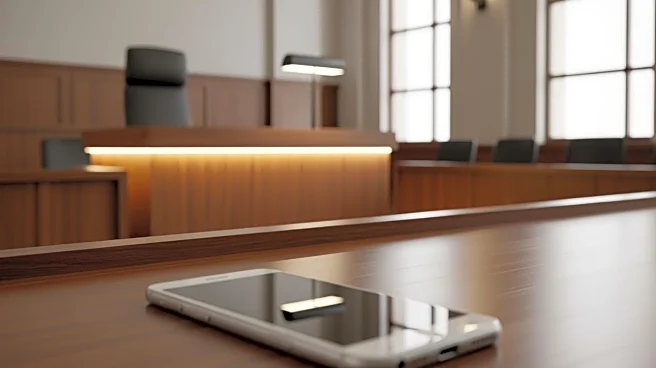What's Happening?
A federal trial has concluded regarding the deployment of National Guard troops to Portland, Oregon, ordered by President Trump to protect the Immigration and Customs Enforcement (ICE) facility amid ongoing
protests. The trial, presided over by U.S. District Judge Karin Immergut, revealed that National Guard troops were present at the facility even after a restraining order was issued to prevent their deployment. The Trump administration argues that the deployment is within presidential authority to address what it describes as coordinated violence against the facility. However, state and city attorneys argue that the deployment infringes on Oregon's sovereignty and misrepresents the situation, potentially inflaming tensions. The judge is expected to make a decision by Sunday, with the possibility of an appeal from the losing side.
Why It's Important?
The outcome of this trial holds significant implications for federal and state relations, particularly concerning the limits of presidential authority in deploying military forces domestically. The decision could set a precedent for how federal interventions are managed in states experiencing civil unrest. The deployment has been a point of contention, with arguments about the necessity and proportionality of the federal response to protests. The ruling could impact future federal responses to protests and the balance of power between state and federal governments. Stakeholders, including local law enforcement and civil rights groups, are closely monitoring the situation, as it could influence public policy and civil liberties.
What's Next?
Judge Karin Immergut is expected to issue a ruling by Sunday, which will determine whether the National Guard can remain deployed in Portland. The decision is likely to be appealed, regardless of the outcome, indicating a prolonged legal battle. The ruling could prompt reactions from political leaders and civil society groups, potentially influencing public opinion and policy on federal interventions in state matters. The situation remains fluid, with potential implications for future federal-state interactions and the handling of civil unrest.
Beyond the Headlines
The trial highlights deeper issues regarding the use of military force in civilian contexts and the potential for escalating tensions between federal and local authorities. The deployment of the National Guard raises ethical and legal questions about the appropriate use of force and the protection of civil liberties during protests. The case underscores the challenges of balancing security and civil rights, particularly in politically charged environments. The outcome could influence future legal interpretations of presidential powers and the role of the military in domestic affairs.








